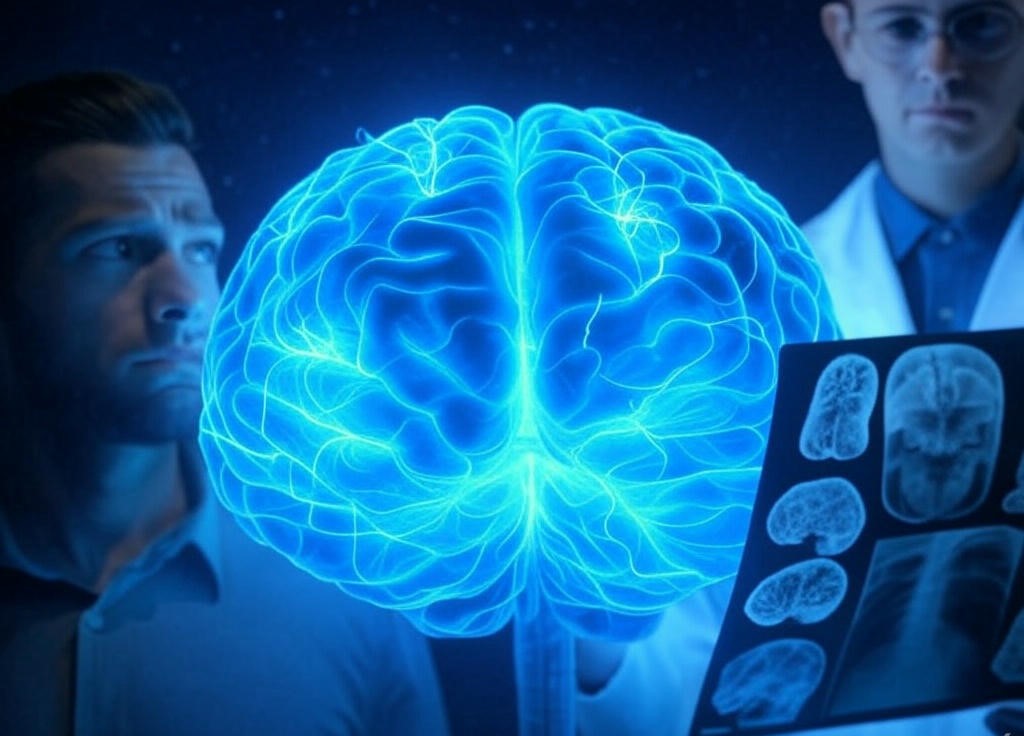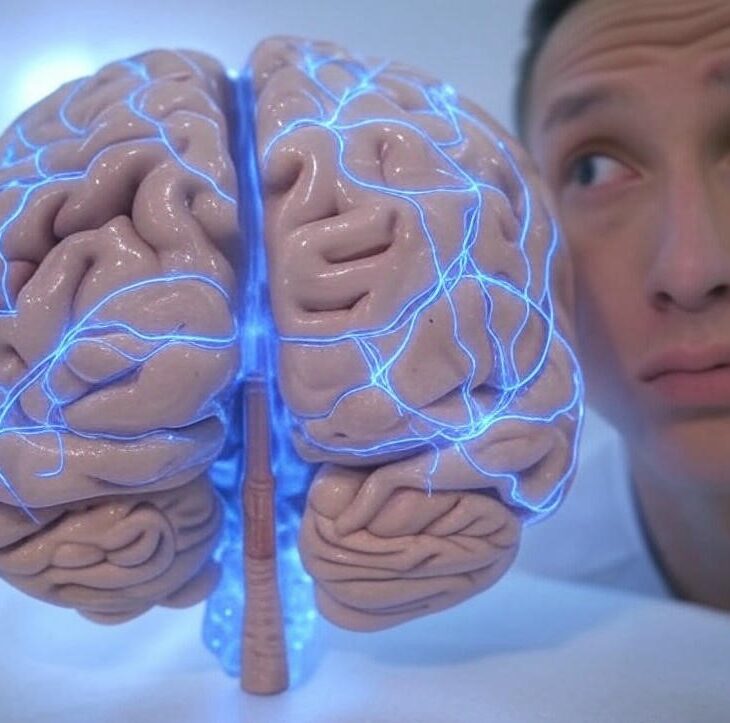10 Early Signs of Alzheimer’s Disease You Shouldn’t Ignore in 2025
Alzheimer’s disease, a progressive neurological disorder, affects millions worldwide, robbing individuals of memory, cognition, and independence. In 2025, early detection remains critical for managing symptoms and improving quality of life. But how can you spot the early signs of Alzheimer’s before it progresses? In this article, we’ll explore 10 subtle yet significant symptoms of Alzheimer’s disease, why they matter, and what you can do if you notice them. Whether you’re concerned for yourself, a loved one, or simply want to learn about Alzheimer’s symptoms in 2025, this guide from DoctorBookly.com will empower you with knowledge and actionable steps.
What Is Alzheimer’s Disease?
Before diving into the signs, let’s clarify what Alzheimer’s is. Alzheimer’s is a chronic neurological condition that primarily affects the brain, leading to memory loss, cognitive decline, and behavioral changes. It’s the most common cause of dementia, accounting for 60-80% of cases, according to the Alzheimer’s Association. In 2025, advances in research—such as new diagnostic tools and potential treatments—are making early detection more accessible than ever. But recognizing the early signs of Alzheimer’s is the first step.
Why Early Detection of Alzheimer’s Matters in 2025
In 2025, early intervention can significantly slow Alzheimer’s progression. With ongoing clinical trials for disease-modifying therapies and increased awareness campaigns, spotting the first signs of Alzheimer’s can lead to better outcomes. If you’re wondering, “What are the early signs of Alzheimer’s?” or “Can Alzheimer’s be prevented?”—read on to stay informed and proactive.
10 Early Signs of Alzheimer’s Disease to Watch For
Here are 10 early symptoms of Alzheimer’s disease you shouldn’t ignore in 2025. These signs often start subtly but can escalate if left unaddressed. If you notice any of these, consult a neurologist—a “brain doctor”—for a thorough evaluation.
1. Memory Loss That Disrupts Daily Life
One of the most recognizable early signs of Alzheimer’s is memory loss that goes beyond occasional forgetfulness. Forgetting recent conversations, appointments, or where you placed everyday items (like keys) and being unable to recall them later could signal Alzheimer’s. Unlike normal aging, this memory loss interferes with daily activities and worsens over time.
2. Difficulty Planning or Solving Problems
Struggling with tasks that require planning, like managing a budget or following a recipe, is another early indicator. You might notice challenges concentrating, making errors in familiar tasks, or taking longer to complete routine activities. This stems from changes in the brain’s executive function, a hallmark of early Alzheimer’s symptoms in 2025.
3. Confusion with Time or Place
Do you or a loved one frequently lose track of dates, seasons, or locations? Early Alzheimer’s can cause confusion about time, such as forgetting what day it is or getting lost in familiar places. This neurological sign of Alzheimer’s reflects changes in spatial and temporal awareness, often overlooked as mere absentmindedness.
4. Trouble Understanding Visual Images and Spatial Relationships
Vision problems unrelated to eye health can be an early sign of Alzheimer’s. Difficulty reading, judging distances, or recognizing colors and faces may occur. These visual-spatial issues are linked to brain changes affecting the occipital lobe, making them a critical symptom to monitor in 2025.
5. New Problems with Words in Speaking or Writing
Struggling to find the right words, repeating phrases, or pausing mid-sentence can indicate early Alzheimer’s. You might notice someone having trouble following or joining conversations, or they may call things by the wrong name. This language difficulty is a neurological symptom tied to brain function decline.
6. Misplacing Things and Losing the Ability to Retrace Steps
Everyone misplaces items occasionally, but early Alzheimer’s symptoms include putting things in unusual places (e.g., a phone in the refrigerator) and being unable to retrace steps to find them. This behavior often frustrates individuals and their families, signaling deeper cognitive changes.
7. Decreased or Poor Judgment
Poor decision-making, such as neglecting personal hygiene, falling for scams, or making risky financial choices, can be an early sign of Alzheimer’s. This reflects changes in the brain’s frontal lobe, which governs judgment and reasoning, making it a key neurological condition to watch for in 2025.
8. Withdrawal from Work or Social Activities
Losing interest in hobbies, work, or social engagements is common in early Alzheimer’s. You might notice someone avoiding friends, skipping favorite activities, or becoming isolated. This withdrawal often stems from cognitive challenges or difficulty keeping up with conversations, impacting quality of life.
9. Changes in Mood and Personality
Mood swings, confusion, suspicion, or increased anxiety can signal early Alzheimer’s. A once-sociable person might become irritable, fearful, or depressed, especially in unfamiliar situations. These emotional changes are neurological in origin, tied to brain alterations affecting behavior.
10. Trouble Completing Familiar Tasks
Struggling with routine activities—like driving to a known location, playing a favorite game, or using household appliances—can indicate early Alzheimer’s. This difficulty arises from the brain’s inability to process familiar information, a subtle but significant symptom in 2025.

When to See a Neurologist for Alzheimer’s Symptoms
If you or a loved one exhibit any of these early signs of Alzheimer’s, it’s time to consult a neurologist. A “brain doctor” can perform tests—such as cognitive assessments, brain imaging (e.g., MRI or PET scans), and blood work—to determine if Alzheimer’s or another neurological disorder is present. Early diagnosis in 2025 can open doors to treatments, lifestyle changes, and support resources, improving outcomes.
Wondering, “How to spot Alzheimer’s early?” Pay attention to patterns—isolated incidents may not be alarming, but consistent or worsening symptoms warrant professional evaluation. Visit DoctorBookly.com to find a trusted neurologist near you and learn more about Alzheimer’s prevention tips and brain health.
Can Alzheimer’s Be Prevented in 2025?
While there’s no cure for Alzheimer’s, research in 2025 suggests lifestyle changes can reduce risk. Staying physically active, eating a brain-healthy diet (like the Mediterranean diet), engaging in mental exercises, and managing cardiovascular health may lower your chances of developing Alzheimer’s. Staying informed about Alzheimer’s symptoms and consulting a neurologist for early evaluation are also key prevention strategies.
Conclusion: Take Action on Alzheimer’s Symptoms Today
Recognizing the early signs of Alzheimer’s disease in 2025 can make a world of difference. From memory loss to mood changes, these symptoms are your body’s way of signaling potential neurological issues. Don’t ignore them—early detection through a neurologist’s expertise can lead to better management and support.
For more insights on brain health, neurological disorders, and finding a specialist, explore DoctorBookly.com. Together, we can navigate the challenges of Alzheimer’s and prioritize your well-being.



